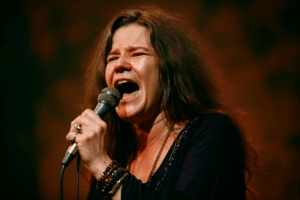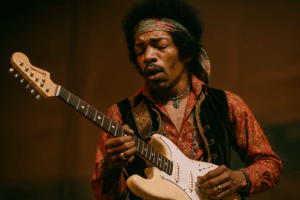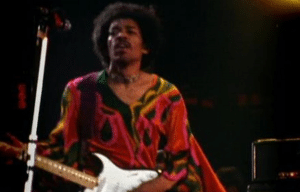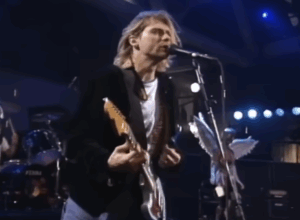10 Awful Songs From The 1960s That Reached Number 1

via catman916 / Youtube
The 1960s was a decade of musical revolution, but not all of it was memorable for the right reasons. While iconic songs and groundbreaking genres emerged, there were also a surprising number of chart-toppers that simply didn’t stand the test of time.
Some of these hits have since become synonymous with poor taste, while others feel like historical oddities. They reached number one on the charts but didn’t deserve to. In fact, some may have even helped prolong political conflicts or support misguided movements, leaving a stain on music history.
With rock and roll rising to prominence, it was clear the world was changing. But, unfortunately, many songs clung to outdated ideals. While “The Ballad of the Green Berets” may not make the list of worst songs, there are certainly others from the 1960s that easily would. Here’s a look at ten of them.
10. “If You Wanna Be Happy” – Jimmy Soul (1962)
David Soul’s song landed in the bottom five of the worst 1970s number ones, earning Jimmy bragging rights among soul singers. Ignoring the lyrics, the tune has a mildly infectious quality, though the repetitive melody drags it down. This is a common issue with many subpar hits.
The song features a decent sax solo, but the production is overly focused on creating a “happy party” atmosphere. Background vocals and a silly spoken word segment clutter the track, making it feel forced and out of place.
The lyrics are a major issue, with lines like “If you wanna be happy for the rest of your life – Never make a pretty woman your wife.” The song suggests that an “ugly girl” should be the ideal partner, provided she can cook. While Jimmy positions this as his personal view, it still comes off as outdated and condescending.
9. “Winchester Cathedral” – The New Vaudeville Band (1966)
“Winchester Cathedral” by The New Vaudeville Band is a brief track, just over two minutes long, with the first half being a forgettable music hall instrumental. It may be seen as a sweet throwback or a silly piece of tripe, blending both in equal measure. The vocal portion starts halfway through.
John Carter, who had backed up on The Who’s “I Can’t Explain,” delivers his lines with an exaggerated accent designed to mimic pre-war crooners. This vocal style had long since fallen out of fashion by the 1960s, making the performance seem more out of touch than endearing.
Had Carter opted for a more straightforward delivery, the song may not have been as irritating. Instead, the entire track seems to mock the very genre it’s attempting to emulate. Frank Sinatra’s version, though not groundbreaking, presents a much more polished and sincere take on the song.
8. “Calcutta” – Lawrence Welk (1961)
“Calcutta” by Lawrence Welk, like “Winchester Cathedral,” runs just over two minutes, with the first part being a harmless instrumental. It’s entirely innocuous until the vocals begin, though calling them vocals might be generous. What follows is a chorus of fresh-faced Central Europeans intoning “na na na” in a way that feels more like a chant than singing.
The “singing” quickly devolves into a silly beer hall-style performance. The repeated “na na na” and the cheerful accordion solo make it feel like a performance at a lively festival, but not in a way that’s particularly appealing. The track soon drifts back to more of the same, with no real change in direction.
The song ends with the same melody it’s been playing all along, capped by a double-time “LaLaLa” to close. The connection to Calcutta itself remains a mystery, leaving the listener to wonder how this song became a number-one hit.
7. “Running Bear” – Johnny Preston (1960)
“Running Bear” by Johnny Preston opens with a distorted war chant meant to set the stage for its tragic tale. The chant continues throughout the song, and it even returns at the end, accompanied by some exaggerated whooping, supposedly to add authenticity. The result, however, is more uncomfortable than convincing.
The song tells a Romeo and Juliet-style tragedy about Running Bear, a young Indian brave, and his love, Little White Dove. Despite their passion, the two lovers are separated by their warring tribes, and the story ends with their tragic deaths in a river, allowing them to be together in the “happy hunting ground.”
What makes the song odd is its attempt at a bluesy feel, with some decent sax work by Link Davis. But just as it gains some momentum, the song falls back into the same over-the-top chanting and melodramatic storytelling. Compared to the likes of Hank Williams’ “Kaw-Liga,” it may not be more authentic, but it’s certainly much more enjoyable.
6. “There! I’ve Said It Again” – Bobby Vinton (1964)
Bobby Vinton was a major hitmaker in the early ’60s, with several number-one songs to his name. While his voice was smooth and inoffensive, it was rarely exciting. When paired with the right material, such as “Blue Velvet” or “Mr. Lonely,” he delivered solid performances, but his first number one, “Roses Are Red (My Love),” felt a bit stilted.
However, “There! I’ve Said It Again” takes schmaltz to a whole new level. The melody lulls the listener into a sleepy haze, and the backing choir only adds to the lull, leaving little to shake off the track’s dullness. The exclamation mark in the title seems to mock the listener’s patience.
Sam Cooke recorded the song years before Vinton, and his version is far superior. Cooke’s take was more modern, with an expressive, conversational delivery influenced by Sinatra. While the song may not have been a classic, in Cooke’s hands, it felt alive and real. Vinton’s version, in contrast, is a slow-moving collection of overblown pop clichés.
5. “Honey” – Bobby Goldsboro (1968)
Bobby Goldsboro’s “Honey” is the epitome of mawkish sentimentality. The song stretches a simple, nursery rhyme-like melody over a long four minutes, dragging listeners through a story that feels overly saccharine. It’s a prime example of a song that wears its sentimentality too thin, making it difficult to appreciate.
The song tells the story of a woman, whom the singer reflects on with a mix of affection and condescension. She’s described as “kind of dumb and kind of smart” and is spoiled with a puppy, though she’s often crying over trivial matters. The portrayal feels more infantilizing than endearing.
As the song progresses, it’s revealed that she’s dead, with Goldsboro using the phrase “the angels came” to convey her passing. While it aims to tug at heartstrings, the heavy-handedness of the sentiment fails to evoke genuine emotion, leaving it more cloying than touching. The result is a definition of mawkishness in musical form.
4. “Mr. Custer” – Larry Verne (1960)
Larry Verne’s “Mr. Custer” is a novelty song that quickly overstays its welcome. The track features Verne performing in the voice of a cowardly soldier pleading to avoid battle. While it may have been funny at first, the exaggerated and grating vocal style makes it unbearable over time.
The entire song is sung in this intentionally irritating voice, which was perhaps a poor decision given its repetition. A little bit of this performance might have been humorous, but the full song quickly becomes tiresome. It’s a novelty song, but not in a charming way.
Set during the lead-up to the Battle of Little Bighorn, the song features stereotypical war whoops and drums. The soldier whines his way through the story, asking why he’s there and cracking jokes. The song ends with the sound of arrows, offering a merciful conclusion to an otherwise painful listening experience.
3. “Wooden Heart” – Joe Dowell (1961)
“Wooden Heart” is a clumsy song that never quite finds its identity. Based on an old German melody, it struggles between being a nursery rhyme and a proper song. The fact that it’s hard to tell which direction it’s going only adds to its charm—or lack thereof. Despite being written by Bert Kaempfert, the same songwriter behind the hit “One Week” by Barenaked Ladies, this track falls flat.
Elvis Presley’s European release of the song predates Joe Dowell’s American version, and there’s a reason Elvis held back from releasing it in the U.S. His version, though not great, is far superior to Dowell’s. While Elvis’s charisma could elevate even a poor song, Dowell’s performance lacks any memorable qualities, leaving listeners with little to hold onto.
The tinny orchestration and forgettable vocals in Dowell’s version make the song feel like it’s playing on a toy keyboard. The backing voices and carnival-like solos fail to add anything meaningful. When Elvis eventually released his version in the U.S., it barely charted, possibly because American audiences had already heard Dowell’s version or simply wished to forget it.
2. “Go Away Little Girl” – Steve Lawrence (1963)
“Go Away Little Girl,” written by Carole King and Gerry Goffin, could have been a hit with the right touch. While Donny Osmond’s version in the ’70s was a teeny-bopper’s heartfelt lament, Steve Lawrence’s rendition from 1963 misses the mark entirely. The tempo and orchestration are bland, contributing little to the song’s impact. But it’s Lawrence’s singing that truly makes this version hard to endure.
Lawrence seems to aim for an emotionally charged performance but ends up sounding more like a sickly, lumbering animal. His voice doesn’t convey devastation; it’s more reminiscent of a moose suffering from indigestion. The attempt to express sadness falls flat, leaving him sounding queasy rather than heartbroken.
The chorus, where he should be pouring his emotions out, remains subdued and unimpressive. As the song progresses, the swelling strings only serve to drown any potential momentum. In the end, it’s a lackluster performance of an already mediocre song, leaving listeners wishing for a redo.
1. “Moody River” – Pat Boone (1961)
“Moody River” by Pat Boone is a prime example of a disconnect between song content and performance. The song tells the tragic tale of a man discovering that his lover has taken her own life, drowning in a moody river. It’s a deeply emotional story, but Boone’s delivery is anything but emotional.
Instead of conveying the gravity of the situation, Boone sings the song with the same flat, uninspired tone one might expect from a commercial jingle. There is no raw emotion, no sense of heartbreak—just a mechanical performance that completely misses the emotional core of the story.
The song also contains a bizarre shift from first to third person when describing the aftermath of the tragedy. Boone’s sudden change in perspective, without any explanation, adds to the feeling of detachment. Meanwhile, the cheery piano continues to play, creating an odd contrast that only emphasizes the need for a redo.





















